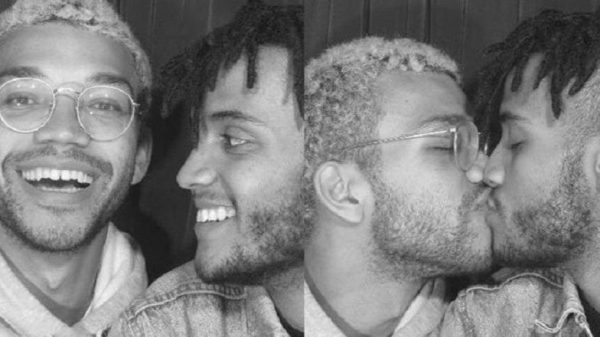When We Rise was billed as the ultimate LGBTQ story. Told over four nights, the epic miniseries featured big stars (Guy Pearce, Mary-Louise Parker, Whoopi Goldberg, Rosie O’Donnell) and gained access to a massive mainstream audience via ABC. But ratings skewed low. Roughly 3 million people tuned in for the first night. That might sound like a lot of viewers, however, when you factor in that 8 million people still watch Grey’s Anatomy (a 13-year-old show!) on the same network, 3 million really isn’t a big deal. Not to mention, those numbers didn’t get any better over the next 3 nights.
So, what was the problem? When We Rise had everything going for it. It was groundbreaking simply by existing. This wasn’t a gay character buried within a cast of heterosexuals. It was an 8-hour, comprehensive retelling of our history on a major network. Legendary director Gus Van Sant was behind the camera. Openly gay screenwriter Dustin Lance Black (who won an Oscar for writing Milk) was an executive producer. It was certified fresh by Rotten Tomatoes. This should’ve worked.
But it failed for the same reasons that several gay shows fail. They’re either too specific or too broad. In this case, it was the latter.
When We Rise starts out with the push for gay civil rights in San Francisco and pushes forward through four decades of events, ending in modern day. It’s admirable that this show wanted to cover it all. But it came off more like a history lesson or an afterschool special than a genuinely entertaining flashback to America’s LGBTQ past.
Despite the solid acting and directing, this show never got off the ground. It never offered something we hadn’t seen before. If you want to see a gripping take on the AIDS crisis, watch How to Survive a Plague. You won’t make it through without balling your eyes out. Ryan Murphy effectively tugged at the heartstrings in 2014’s The Normal Heart. Even Black’s Milk was a tender, affecting look at Harvey Milk’s life and contribution. Each of these feature films/documentaries dove deeper than the problem or period the stories were based around. They gave us human stories to help us understand the gravity of these events.
Sure, in this miniseries, we get to see Cleve Jones as a young rebel and Roma Guy as a young activist. But, with the show bouncing through several stories and decades, there isn’t enough time to get to know these people or see below the surface.
When We Rise would make a great textbook but it’s not great TV.
And that’s not to say that stories about LGBTQ rights won’t make great TV ever. That’s not the case at all. It’s just this one that doesn’t work. It was an epic opportunity squandered by ambition.
Perhaps if this had found a home on HBO or homed in on one character or time period, there would’ve been a chance to connect to a real story. As we all know, our LGBTQ stories aren’t afterschool special material and they shouldn’t be watered down for primetime.
Yet still, it’s important to acknowledge what has taken place. 8 hours of ABC’s schedule was filled by LGBTQ-targeted programming. That’s unprecedented. And in the Trump era, it’s very hopeful. However, it wasn’t the right program. Instead of a limited series that reinforces the struggle we’ve been through, how about a primetime sitcom or drama that centers on a three-dimensional gay character? One who goes through things that everyone experiences: professional drama, a turbulent love life, difficult friendships.
If we want everyone else to start watching, we have to stop driving home the past and focusing so hard on what makes us different. For us to truly rise, we must find common ground.

